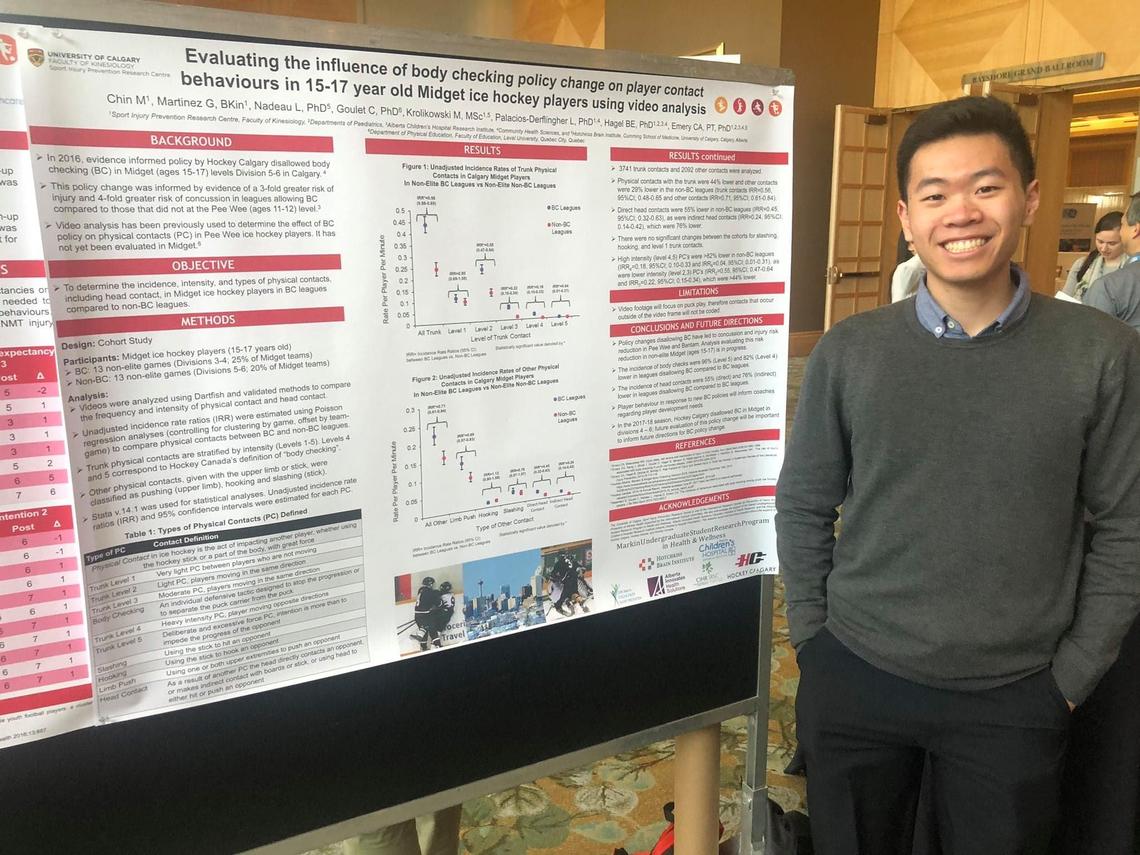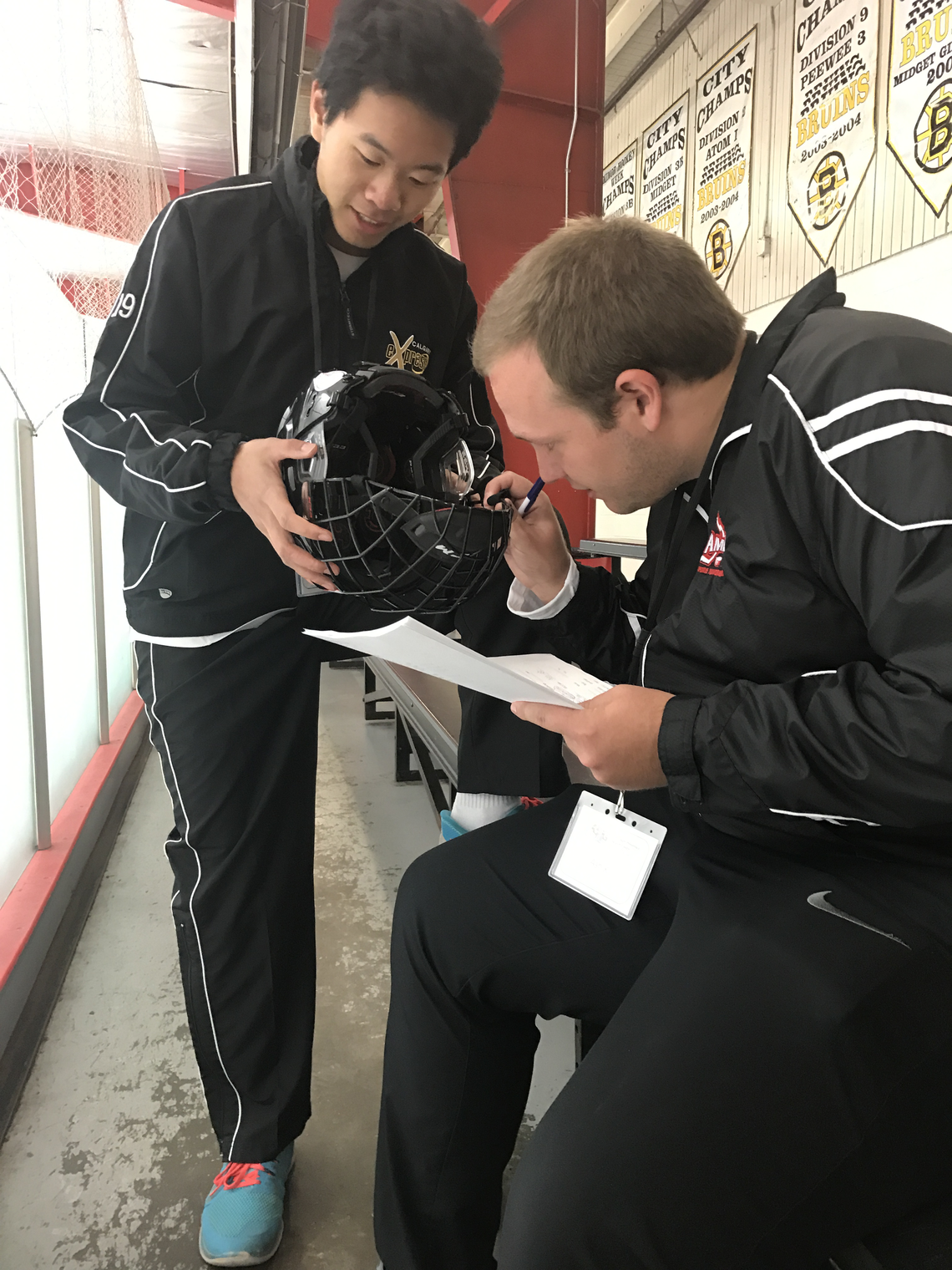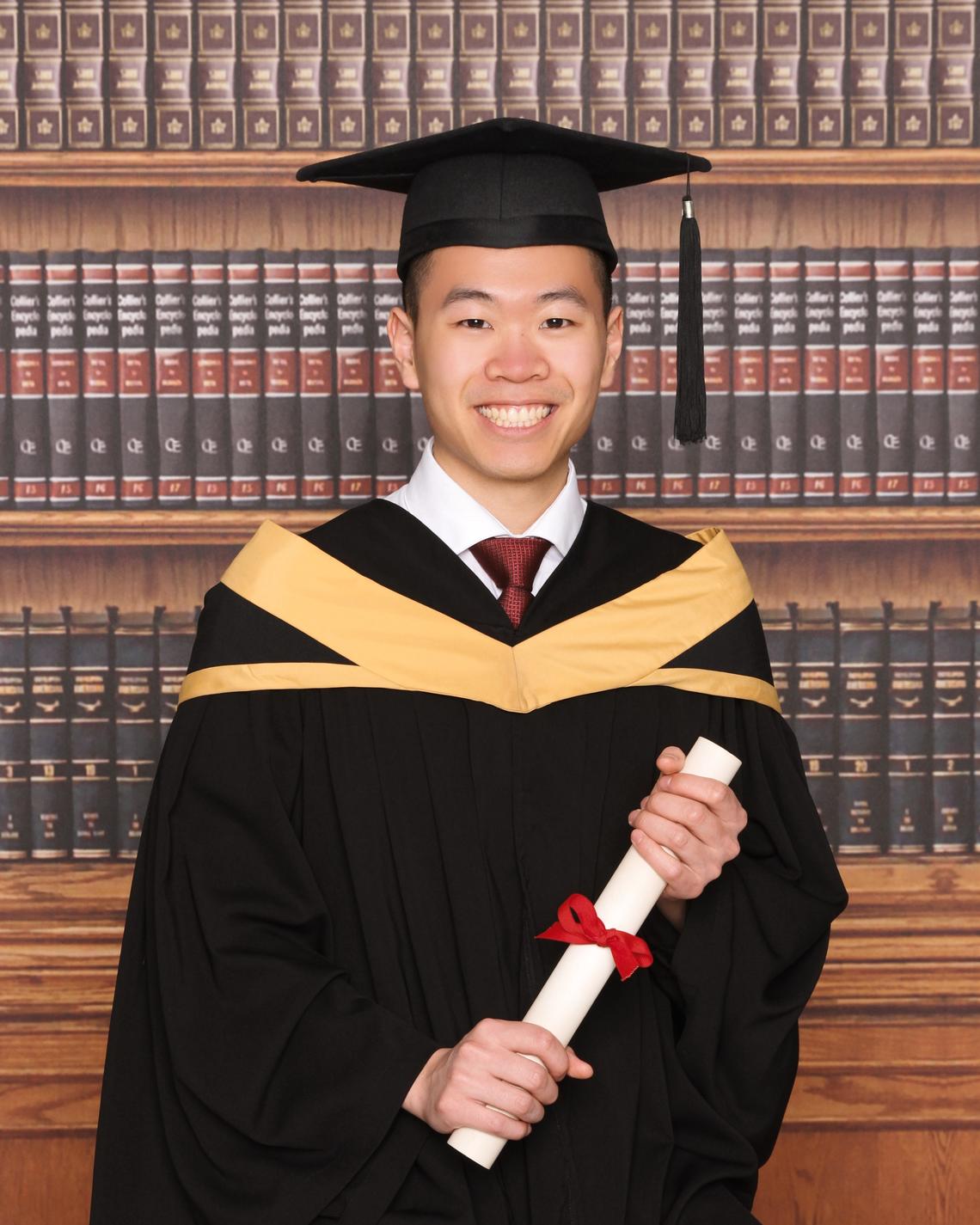June 17, 2020
Class of 2020: Kinesiology grad is committed to speed, action and advocacy

We’ve all reverted to the old chestnut — that, if you want something done, you should ask a busy person to do it.
Say, for example, Bachelor of Science (Kinesiology) graduand Mathieu Chin, suggests Dr. Cari Din, PhD '13, who taught two leadership courses to Chin.
“He makes things we agree should happen, actually happen,” writes a somewhat awestruck Din, who is an instructor in the Faculty of Kinesiology. “Mathieu never waits for change, he creates it. After identifying a need, he marshals the resources he can access and leads change — from big financial investments in our faculty to small group-learning challenges in class.”
A testament to Chin’s seemingly endless commitment to speed, action and advocacy is his resume that’s a litany of university volunteer work. He has helped teach exercise classes at the Thrive Centre, eventually becoming its outreach director; he’s participated in research studies that examined injuries in youth hockey, soccer and basketball; and he was the kinesiology rep for the Students’ Union, a member of the Scholars Academy, and a leader with Peer Assisted Student Sessions (PASS) for a biomechanics class.
- Photo, above: For Mathieu Chin, right, sports are not just a game, but something that brings together people from around the world.
“Four years ago, when I first began studying here, I remember thinking there were so many opportunities to get involved in,” says Chin. “Now that I look back, those clubs, research projects and other things really shaped my undergrad experience and, in a way, have shaped me as a person.”
Let’s just cut to the chase and admit that Chin is graduating with impeccable credentials and is in optimal academic shape — so much so, he’s off to further his studies at the Cumming School of Medicine, where he is envisioning a career in general surgery, neurology or emergency medicine.
As for a dream job? “That would be working with Team Canada as a sports medicine physician for Olympic athletes,” replies Chin, without hesitation.

Mathieu Chin has expanded his academic expertise by working with researchers at the University of Calgary.
The path that first led Chin to his undergrad degree, and now into medicine, began on a snowy hockey rink when he was just a tot. He admits it was his unwavering passion for hockey (a game he played competitively for 13 years) and sports that drove him to pursue kinesiology, where he fell for biomechanics in a big way.
“To me, sports are more than just a game,” says the guy who confesses to loving hot dogs, the Netflix series You, and his Lululemon ABC Joggers. “I love sports because it brings people from around the world together, it pushes the limit of what we think is humanly possible, and it gives us hope for the future.
“Plus, sports taught me that we are much stronger as a team than individually. Working on a team makes bigger-picture goals digestible and easier to accomplish.”
Combine Chin’s leadership skills with his ability to work on teams and what you get are some of his biggest academic thrills. One highlight was working as a researcher with Dr. Carolyn Emery, PhD, and Dr. Kati Pasanen, PhD, of UCalgary’s Sport Injury Prevention Research Centre. Both gave Chin the opportunity to present his work (from body-checking policies in youth hockey players to how wearable technology can determine exercise fidelity in athletes) at national conferences in Vancouver and Banff. Then, last November, Pasanen further encouraged Chin to conduct a case study in Finland, where he worked with the UKK Institute (a research centre) for a week.

Mathieu Chin, left, says sports helps push the limits of what is humanly possible and gives hope for the future.
When listing off his other academic influences, Chin is also quick to point out that Dr. Lara Cooke, MD, an associate professor of neurology at the Cumming School of Medicine, "has been another mentor throughout my undergraduate degree;" and that Din "has inspired me through her amazing classes that were always student-centric and full of learning activities, not lectures.”
According to the Myers-Briggs personality type indicator, Chin’s personality is “ISTJ” (Introvert, Sensor, Thinker, Judger). He’s a perennial optimist — and a huge fan of this city.
Last December, Chin lost his wallet — twice. “In it were pieces of ID, gift cards and $100 cash,” he recalls. “Both times, it was returned with nothing taken from it. A strong testament to Calgary’s culture.
I am not saying that’s why I am going to carry on studying here, but the support of so many people — my family, friends, professors, UCalgary community and even people I have never met who helped me through scholarships — would be tough to find anywhere else.
As one of his mentors, Din is banking on Chin contributing more to this community. “I know this may sound over-the-top, but Mathieu has the qualities we need in our next generation of health leaders,” she says. “He sees health holistically and values the life of the mind and the body equally. And he will advocate for those without privilege.
“Mathieu’s commitment to act and advocate on behalf of those who don’t stand on the podium or hold the microphone will make him an exceptional doctor,” she adds, “one who will serve the needs of his patients and the larger community he contributes to.”

Mathieu Chin has 'the qualities that we need in our next generation of health leaders.'
- Read more: Check out many more profiles of the outstanding members of Class of 2020. And follow the graduate positivity on social media by following #ucalgarygrad





